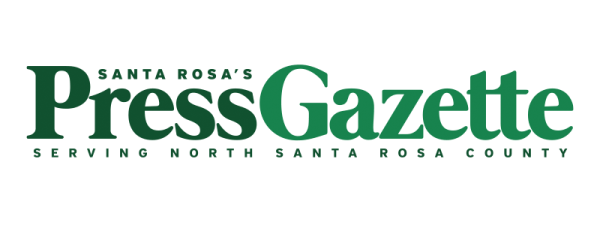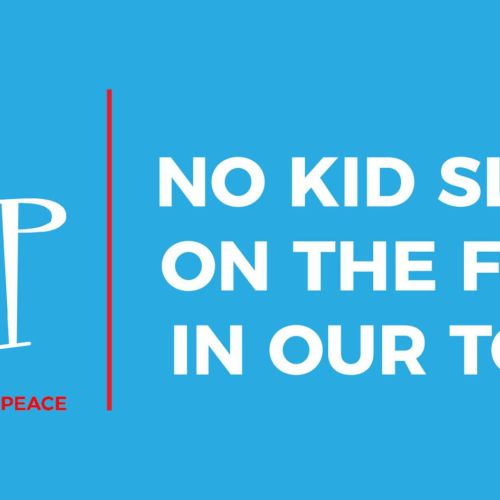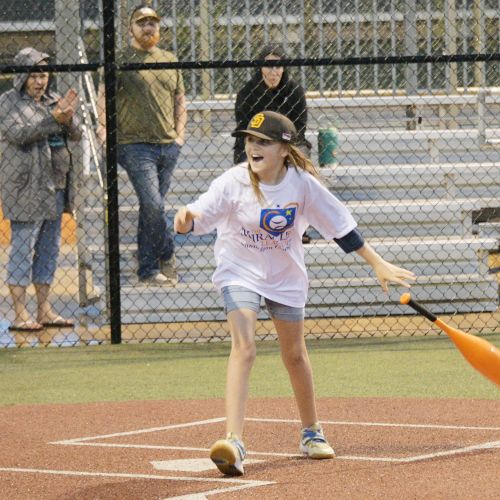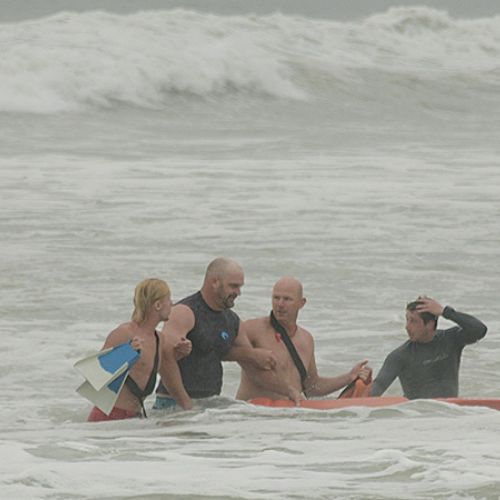Stories by Hansen Hasenberg
Stories by Hansen Hasenberg
Navarre Beach Car Show held in honor of local racer
October 23, 2024
On Aug. 10, 2024, the Santa Rosa County racing community lost a beloved figure. That day, James Fox, 33, of DeFuniak Springs, suffered a medical emergency during a race at Southern Raceway in Milton. His car crashed into the concrete wall and fence that surrounded the track.
Bed building nonprofit ensures no child sleeps on floor in Santa Rosa County
October 21, 2024
A local nonprofit organization is making sure no child sleeps on the floor in Santa Rosa County.
Sleep in Heavenly Peace, a nonprofit organization with a chapter in Pensacola, supplies beds to children in Santa Rosa and Escambia counties.
Miracle League braves stormy weather for some baseball
October 7, 2024
While it only lasted a few innings, before rain forced their game’s postponement, Miracle League of Santa Rosa County participants were having a blast playing baseball Thursday, Oct. 3.
Butterflies, pollinators get spotlight in extension office event
October 7, 2024
Pollinators, such as bees and butterflies, play an important role in the lives of plants and, by extension, humans.
Santa Rosa Co. teachers to receive pay increase after district, teacher’s union agree on TSIA dispersion
October 2, 2024
The Santa Rosa Professional Educators (SRPE) have reached a deal on Teacher Salary Increase Allocation (TSIA) funds with Santa Rosa District Schools. TSIA funds come from the State of Florida’s Department of Education.
Surfer rescued Thursday at Navarre Beach as Helene brought large swells
September 27, 2024
A surfer was rescued by Navarre Beach Lifeguards just west of the Navarre Beach Fishing Pier on Thursday, Sept. 26.
School bus involved in crash near Berryhill Road Tuesday morning
September 24, 2024
A group of schoolchildren, an adult passenger and their school bus driver are alright after a semi flatbed truck sideswiped their bus. The bus, which was carrying four children and two adults, was stopped southbound in the left turn of Anderson Lane while waiting for the traffic light at Berryhill Road. The semi was making […]
Bereaved parent shares cautionary tale about fentanyl with Santa Rosa high schoolers
September 23, 2024
This past week, crowds of high schoolers from across the district made their way to special assemblies to hear a powerful presentation from Greg Swan on the dangers of fentanyl and drug use.
Navarre High looks to bring welding program to campus next school year
September 12, 2024
Let the sparks fly!
Navarre High School, in conjunction with Locklin Technical College, is bringing a welding course to campus. The full course, which will be roughly two semesters in length, will start next school year (SY 2025-26) and serve as another addition to the high school’s already stacked line-up of career and technical education (CTE) courses and opportunities.
Sand available at four locations within the county
September 10, 2024
Although not facing a direct impact from Tropical Storm Francine, Santa Rosa County may still see some impacts from this tropical system. According to the U.S. National Weather Service Mobile Office, local impacts may include: A high risk of deadly rip currents Tuesday night through Friday night Dangerous surf Wednesday night through Thursday night Tornadoes […]
















